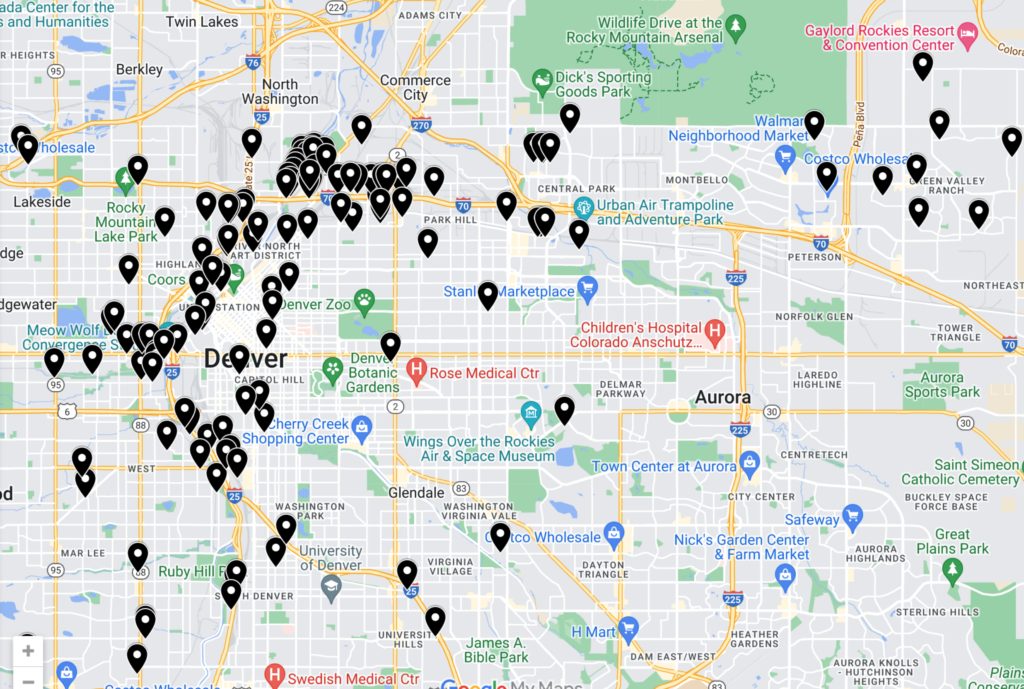Denver bureaucrats are combing through a preliminary map of government-controlled locations across the city to determine which ones fit their criteria to become micro communities to hide the homeless.
It’s part of incoming Mayor Johnston’s promise to end homeless during his first term, and get 1,000 homeless under a roof, any roof, in his first year.

Johnston is pursuing a controversial roof-first approach to homelessness, that just gets them off the streets first and then bothers to deal with the issues that put them there in the first place, like drug abuse, mental illness, and joblessness.
PeakNation™ will recall that we get criticized for using the term “ghetto,” but that is exactly what the city is creating with micro communities of tiny homes that only serves to enable a drug abuse crisis that coexists and grows rapidly alongside the legalized marijuana and psychedelic mushroom culture.
Because drug use, and possession of dangerous drugs like Fentanyl are legal in Colorado, too many trusting souls also presume drugs to be safe and harmless.
The Denver Gazette reports the criteria to make the final cut for the seven to 10 micro communities includes the site’s proximity to public transit, distance to schools, current zoning and a plethora of other government rules and regulations.
The homeless sites are also supposed be equitably distributed across the city. We can’t wait to find out what “equitable” means for micro communities of drug abusers and the untreated mentally ill.
And as goes the homeless, so goes the drug trade.
The NIMBY force will be strong with this one.
It’s not just government-operated lands already funded by taxpayers that are under consideration for locations. Bureaucrats are also courting private landowners to buy or lease even more property.
The Denver City council is supposed to vote tonight (Monday) to spend $7 million of your hard-earned tax dollars on 200 tiny homes for three micro communities that would house 540 homeless folks.
The tiny homes, which used to be called shacks, can sleep two to four people.
At this rate, Denver could get the other 5,278 homeless people out of sight and out of mind for about $70 million of your hard-earned dollars.
